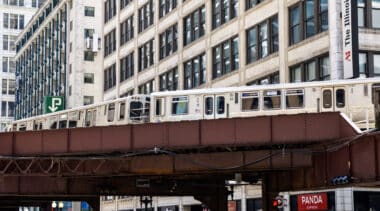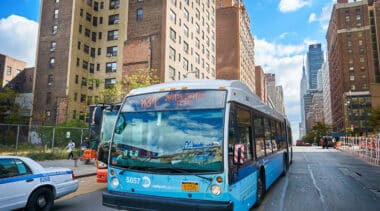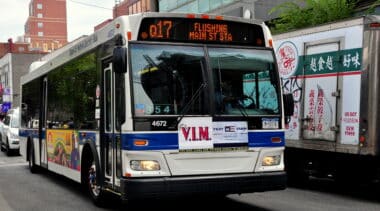-
Could clearance rates be key to addressing criminal justice failures?
Clearance rates are the closest metric we have to evaluating how well the criminal justice system does at catching people who commit crimes.
-
Harm reduction: An evidence-based approach to the drug war
Harm reduction includes proven tools like naloxone distribution, syringe service programs, fentanyl test strip access, and supervised consumption sites.
-
The Gold Standard In Public Retirement System Design Series
Best practices and recommendations to help states move into a more sustainable public pension model for employees and taxpayers.
-
Deepfakes, AI, and existing laws
A nuanced policy response can address the challenges of deepfakes while preserving the benefits of creative and expressive digital technologies.
-
A legislative template for a modernized public sector defined contribution plan
This legislative template offers a policy-based plan design that synthesizes the best aspects of both defined benefit and defined contribution models.
-
Consent requirements in comprehensive data privacy laws: Current practices and the path forward
Privacy laws worldwide increasingly rely on user consent as the primary mechanism for governing data collection, processing, and sharing.
-
Low tech mileage-based user fee options
Mileage-based user fees are the most promising replacement for the fuel tax, which is no longer a sustainable way to fund roads and highways.
-
Navigating port funding: Alternatives for reforming the Harbor Maintenance Trust Fund
By addressing the existing inequities and compliance challenges, the U.S. can move toward a more equitable and effective funding mechanism for seaports.
-
Annual Transportation Finance Report 2025
Infrastructure investors financed $77.5 billion worth of public-private partnership infrastructure transactions last year.
-
Annual Surface Transportation Infrastructure Report 2025
It was a strong year for global public-private partnership activity with 43 surface transportation project closings worth $11.9 billion.
-
Annual Aviation Infrastructure Report 2025
For the world overall, 45% of all passenger air traffic moves through airports with significant private investment.
-
Advancing remote air traffic control tower deployment in the United States
Remote/digital tower technology is in wide use in Europe and is rapidly expanding to Asia, Canada, and the Middle East.
-
Drug decriminalization in Oregon: Measure 110’s impacts compared to other countries’ systems
A review of the data does not indicate any massive shift in offense rates or criminal behavior as a result of Measure 110.
-
Transportation and climate change: Urban mobility in a climate-sensitive world
Transportation is undergoing its most profound changes in over half a century.
-
Transportation and climate change: Public transit
This report focuses primarily on operating energy intensiveness and transportation energy impacts as affected by public transportation’s influence on land use.
-
Interstates first: Why the transition to road user charges should begin with limited access highways
To begin the transition from gas taxes to per-mile charging, the U.S. needs a plan to address drivers' privacy, double taxation concerns, and the cost of collection.
-
Transportation and climate change: Travel trends and GHG emissions
As the single largest domestic GHG emissions-producing sector, transportation is inevitably a focus of climate change mitigation initiatives.
-
Addressing the transit productivity crisis
Public transit ridership is unlikely to recover to pre-pandemic levels within the next decade.

















